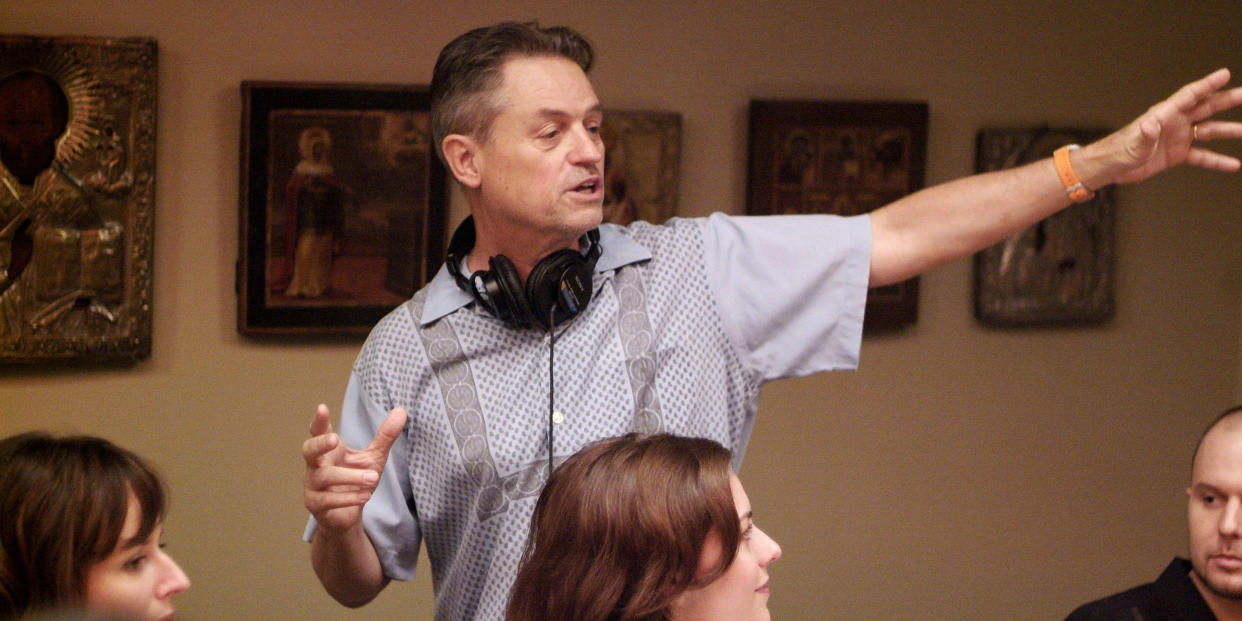Jonathan Demme Was a Director Whose Films Were Defined by Intimacy

I was 17 when I watched The Silence of the Lambs for the first time. I sat alone in my room, late at night, totally enraptured, terrified by the film's immediacy and building dread and in awe at the perfection of its craft. I didn't know much about director Jonathan Demme at that point in my life, but a jaunt through his IMDb revealed a list of feature films and documentaries I had to check out. Over the course of a few months, I watched every Demme movie I could get my hands on. The experience taught me more about what cinema is, what it can be, and on some undeniable level what it ought to be.
Jonathan Demme left us today, at 73 years old, having gifted the world a body of work as rich as it is wide. Most people know his Best Picture-winning The Silence of the Lambs, which also won Demme an Oscar for Best Director. Some may know him for his other films, among them: Melvin and Howard, Something Wild, Married to the Mob, Stop Making Sense, Swimming to Cambodia, Beloved, Philadelphia, Rachel Getting Married, and his most recent film, Justin Timberlake + the Tennessee Kids. That his filmography was eclectic goes without saying. Any career that begins under the guidance of Roger Corman and ends with a Justin Timberlake concert documentary is obviously one of great range.

"Great range," though, is insufficient in describing Demme. There's a temptation to frame him as a workman-a filmmaker whose adaptability made him the perfect Hollywood director-only he was nothing of the sort. Though he usually kept one foot in the door of the studio world, his style was never one suited to large scale production. His interest lay in actors and in mining the emotional depths of faces, bodies, characters in movement, and the spaces they inhabit. Demme's was a cinema defined by intimacy, characterized by openness. That openness is seen in every frame of Something Wild, with Jeff Daniels and Melanie Griffith finding connection in the tiniest gestures. It's there, too, in his TV film Who Am I This Time?, in which two actors in a production of A Streetcar Named Desire fall in love through their characters, forced to navigate the subtle difference between romantic and theatrical performance.
If there is a key to understanding Demme's work it can be found in his frequent departures from fictional narrative and into the world of documentary-music documentary in particular. There has never been a better concert filmmaker than Jonathan Demme, whose first concert film, Stop Making Sense, stands comfortably as the best example of the form. Beginning with David Byrne alone onstage with a boombox, and slowly expanding and expanding into as elaborate a concert as one could ever hope for, Stop Making Sense finds Demme at his most strikingly humane.
Ever inhabiting the headspace of the concert audience, he shoots everything simply, straightforwardly, but always with an eye toward the increasing spectacle of the show itself. No interference-just pure love of music, light, motion, and the absolute elation on the faces of the performers. Demme brought the same appreciation for the euphoria of performance to Justin Timberlake + the Tennessee Kids, and his love of music infected any number of his feature films from Something Wild to Ricki and the Flash.
A lack of intrusiveness permeates Demme's films, no matter the genre, no matter the style. From 1991, beginning with The Silence of the Lambs until 2004's The Manchurian Candidate-Demme worked with cinematographer Tak Fujimoto, developing a style he referred to as "subjective camera." Rather than shoot actors conversing over-the-shoulder, Demme's camera would be pointed right into their faces, their eyes looking directly into the lens, through it, into the audience. The extreme intimacy of the technique made The Silence of the Lambs that much scarier, and films like Philadelphia and Beloved more emotional and more humane. Though the subjective camera is hardly subtle, the effect hits the audience in unexpected ways, dictated by every subtlety on the actor's face as much as the direction that guided them.

Among Demme's lesser seen films is 2013's A Master Builder. The film, an adaptation of Henrik Ibsen's play as interpreted by André Gregory and Wallace Shawn, is filtered through Demme's open approach, allowing scenes to play without interference, perhaps leading to an impression of the director's absence. Rather than impose upon the film his own will, Demme gifts the scenes to the actors, letting their often outsized performance bump up against the walls of conventional cinematic storytelling. It's a method he'd played around with in the similarly pulled-back Rachel Getting Married. He would do so again in his last feature, Ricki and the Flash, a sadly underrated film, which shot a standard quirky family drama through with Demme's signature warmth and affinity for the most minute expressions on an actor's face, and delivering Meryl Streep's best performance in years, not to mention a startling turn from Rick Springfield-yes, that Rick Springfield.
From his early work until his last, Jonathan Demme made films suffused with life, in love with actors, with music, with every raw emotion that could be extracted by a camera. His films are funny, moving, thrilling, sometimes frightening, and often in combinations you wouldn't anticipate. His films are exposures of humanity, revelations of our many facets, giving us glimpses at our inherent connectedness, contained in a frame, projected on a screen. A cinemagoer can't ask for much more than that, and over and over Demme delivered. His films, beautiful and alive, are a grand testament to cinema, and now to the man who made them.
You Might Also Like

